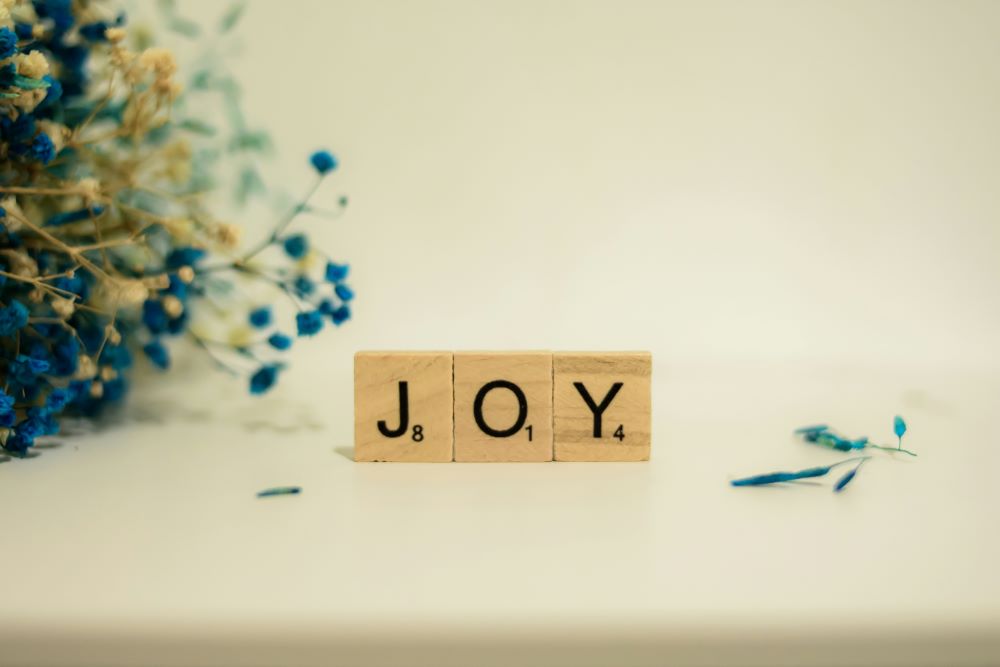
(Unsplash/Alex Shute)
Years ago, I used to take care of my "Irish twin" nephews. One day, spring had finally triumphed over winter, the snow had disappeared and made way for that velvety-soft first growth of grass. One of the boys broke through the front door and did a belly dive to the ground yelling, "GRASS!" Once landed, he remained for about a minute, contemplating what looked like a fresh forest of green when observed at ground level. His joy and fascination were so complete that I had to get down (no belly flop) and see what had captured his attention. Indeed, it was glorious!
I remembered that as I read today's Liturgy of the Word. Both Baruch and Paul emphasize themes of joy. We don't often hear from Baruch. He's about as famous for being Jeremiah's scribe as for the book that bears his name (Jeremiah 32:12-16). Today, we hear him echo Jeremiah's promise of the restoration of the Chosen People.
As in last week's Scriptures, the people who hear God's good news are the exiles who had languished in a foreign land for a little more than 40 years. That was plenty of time to lose their traditions and give up on the God of Israel. Except that they didn't. Prophets helped them understand what was happening and inspired visions of joy and the hope and for what would come from the hand of God.
As Baruch pledges that God will help, he tells "daughter Jerusalem" to abandon mourning and misery and dress up like a bishop or high priest with a tall mitre displaying God's own name. Baruch sums up his message with his last line, "God is leading you in joy, God's glory brightens your way, and you are on the road to a community of justice and mercy."
Our Gospel brings us back to John the Baptist. It might seem strange to talk about that ascetic, bellowing prophet as a herald of joy, but it's true. First of all, Luke is careful to tell us when and where John lived. He told his readers that John was a real person who had lived in the desert in reasonably recent history.
When he says, "The word of God came to John," Luke indicates that Earth was being permeated by heaven. John's time was no ordinary time, just as in the days when God led the people by divine light, John and friends lived in what the Scriptures call a kairos, an opportune time, a time when heaven and Earth are in synch ("on earth as it is in heaven"). A time when something entirely new can happen.
What word of God, what kairos time did John talk about? First of all, he announced the forgiveness of sin. The past had no more hold on people. No one need be defined by where they had been, but by where they were going.
John invited others to assume a new mindset, metanoia, translated here as "repentance." In Greek, metanoia comes from the combination of words meaning beyond and mind. Metanoia is not as simple as repentance. Metanoia transforms our minds and spirituality, our social awareness, our world vision, and our relationships. Metanoia is an ongoing process of being willingly captivated by the possibilities God holds out for the world. Flattening mountains and straightening roads are minutiae in comparison with the promise, "All flesh shall see the salvation of God." They will see it in those who are living metanoia.
We need to remember that we do not choose metanoia; it is a grace, an offer we can accept or refuse. Paul says this to the Philippians with his promise, "The One who began a good work in you will continue to complete it until the day of Christ Jesus." God inspires metanoia, God continues working within and among us to "complete" it.
Metanoia was the experience that Mary had in the Annunciation, the same grace that led disciples to leave everything behind to follow Jesus. Metanoia involves the sacrifice of setting off on an enticing adventure that colors and reevaluates everything else in our lives. It becomes a communal adventure, joining people together in joyful anticipation, in action and in union with God. Metanoia propels us beyond our puny mindsets into a grand experience of living in unanticipated joy.
This week we will celebrate both the Immaculate Conception and Our Lady of Guadalupe. The Immaculate Conception reminds us that humanity is made for God. Guadalupe gives witness that Christianity belongs to every culture. Both feasts celebrate the human potential to collaborate with God's ongoing offers of grace and thus change history.
Let's celebrate this week with John, who believed in the joy of metanoia and with Mary who rejoiced when invited to live its promise.
Advertisement
